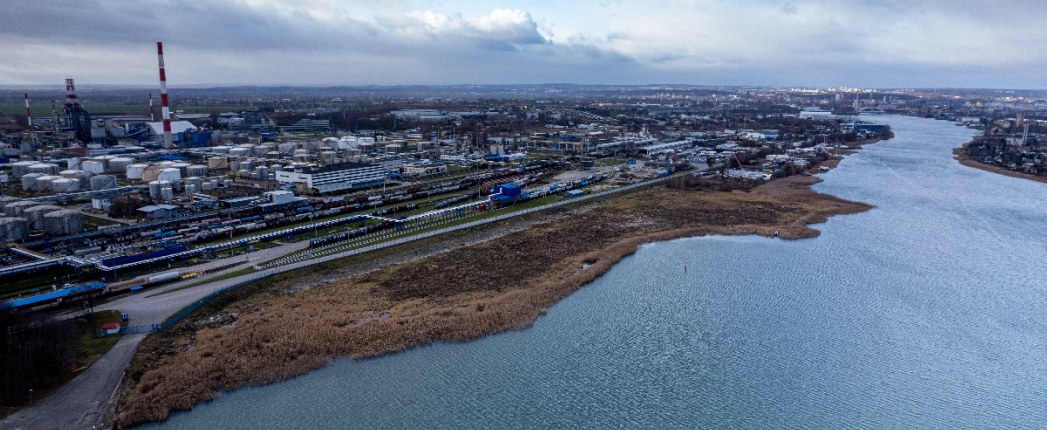
PKN Orlen S.A. announced a $312 million investment to complete construction of its API Group II and III base oil plant in Gdansk, in northern Poland, and an additional project to improve safety at a terminal and supply security.
The Gdansk refinery was previously owned by oil company Lotos, which completed a merger with Orlen Group in August 2022.
Besides the construction of the 400,000 metric tons per year base oil plant, the refinery is set to feature a $133 million modernized marine terminal on its Martwa Wisła river wharf. The terminal will enable handling of more than 1 million tons of refining products, such as base oils, marine fuels and bio-fuel additives, Orlen said in a recent news release. Both projects are scheduled to be completed by mid- 2025.
Orlen announced the modernization of the Gdansk refinery in 2021 during the legal process for the Lotos-Orlen merger, which was subject to the European Union antitrust laws.
“We have allocated a total of PLN 2 billion (U.S. $451 million) to investments that will improve the profitability of crude processing and the security of product supply,” Daniel Obajtek, president of Orlen’s management board said. “By investing in our own infrastructure, we are reducing our dependence on external partners, while generating significant savings in the logistics area… and leverage the Gdansk assets value to achieve Orlen strategic goals.”
Orlen said that the heart of the hydrocracked base oil plant project is a catalytic dewaxing and hydrofinishing unit, which will consist of several sections: reactor, hydrogen compression and hydrogen circulation, light product separation and liquid product distillation.
The prime contractor for construction of the new base oil plant is Italian Kinetics Technology.
The base oil plant will enable the refinery to produce high quality oils and improve the economics of crude processing, the refiner said.
“Even after the transition to new types of fuels, base oils will remain very important products,” Obajtek said. “Whether car will be powered by hydrogen or otherwise, the oils must be used in the propulsion engines.”
After the completion of this new 400,000 t/y Group II/III base oil plant, Orlen will have on its disposal around 900,000 tons of total base oil production capacity, positioning itself as the second largest base oil marketer in Europe.
The company currently operates a 268,000 t/y Group I base oil production in Gdansk, as well as 83,000 t/y and 162,000 t/y Group I base oil capacities in Jedlice and Plock.
Regarding the new shipping dock, the company targets annual handling capacity of the Martwa Wisła river marine terminal to reach up to 2 million tons of products.
With this project it aims to improve the profitability and security of supply of biocomponents for fuels such as bio gasoline and biodiesel, and transport of products such as base oils and marine fuels from the refinery.
“The terminal will also ease the workload of the refinery’s railway siding, currently used to transport products between the refinery and external transshipment points,” the company said.
The transshipment wharf can handle seafaring vessels up to 130 meters long, up to 17.6 meters wide, and with a draught – distance from the keel to the waterline – of up to 5.8 meters.
Three contractors, one German and two Polish, are involved in the construction of the terminal.